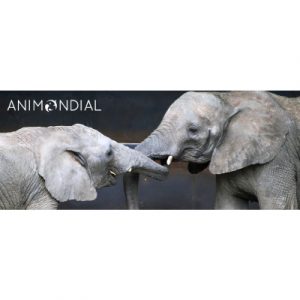ATTA members are more than aware of the controversies surrounding animal-based tourism, from the Asian elephant camps in Southeast Asia, to the stingray tours of the Cayman Islands, to the donkey riding at Santorini. There are so many issues of concern and as an industry, we have struggled with limited advice on the best course of action to take.
Today, as ABTA (The British Travel Association) publishes the 2nd Edition of their Animal Welfare Guidelines, recognised as the most stringent guidelines for the travel industry on animals in tourism, ANIMONDIAL (ATTA’s animal welfare partners) considers an uncertain future for the millions of animals involved in tourism.

“I have been working with the travel industry since 2004, which has included the creation of ABTA’s original Animal Welfare Guidelines for travel businesses on animal welfare in tourist attractions”, explained Daniel Turner, co-Director of ANIMONDIAL. “Since then, animal welfare has risen through the priority rankings and is now thankfully included in most sustainable tourism shortlists.”
Animals remain a popular part of many holiday experiences and, when managed appropriately, such activities can enhance the holiday experience for your customers. However, targeted campaigning and industry boycotts have resulted in many travel businesses ceasing the sale of certain animal activities. Many of which, were established to supply the demand of the tourism industry.
One such example is traditional elephant [tourist] camp in SE Asia and, particularly, the activity of elephant riding. These camps were modified as a tourist attraction in the 1990s when a reported 2000 conditioned elephants were displaced from the Thai timber trade. For decades tourism was the primary driver proliferating the numbers of elephant camps and captive Asian elephants. Today the captive population of conditioned elephants in Thailand alone, is estimated to be 4,700 elephants. It is not known what would happen to these animals and their human dependents without tourism to sustain them. ANIMONDIAL offers the travel industry a different approach. Instead of walking away from the problem, ANIMONDIAL encourages constructive engagement to influence meaningful change.
“Boycotts may have had good intentions, but they can often result in wider issues of concern that require a greater effort to tackle”, explains Daniel Turner. “The good news is that there is a solution and efforts are underway to standardise the captive Asian elephant industry, improve elephant welfare and safeguard the safety of the tourist. It is an initiative devised by the travel industry, for the travel industry.”
Apparently, similar approaches are possible for captive whales and dolphins, working animals, wild turtle feeding, stray animals, and so much more!
ANIMONDIAL is a specialist in animal welfare in tourism and social impact and is now partnered with ATTA to support our members in delivering responsible animal tourism. They provide impartial advice and practical guidance to travel businesses and animal protection NGOs to help reduce the negative impact of tourism on animals and the natural environment.
Utilising over 20 years of applied animal welfare, environmental education and corporate partnership experience, ANIMONDIAL is able to provide travel businesses, both large and small, with all their animal welfare and species protection needs. Guidelines like those produced by ABTA set out basic welfare requirements and help travel businesses and tourism boards to identify inappropriate practices. However, if you seek bespoke guidance that is aligned with your unique business model and brand identity that helps with practical application, then ANIMONDIAL’s broad-spectrum of services may right for you.
Making the right choices, establishing and promoting policy to protect animal welfare, and positively engaging your suppliers, or vendors, to encourage good practice, is the way to go. Taking these steps is likely to enhance brand, increase ticket sales and influence wider, permanent industry change that you can shout about.
“We can guide you on the first tentative steps of a brand-new journey or help refine an already trodden, yet unexplored path”, explains Helen Usher of ANIMONDIAL. “From our basic services that ensure you meet the relevant Sustainable Development Goals and GSTC-D criteria, to offering you bespoke services to enhance your brand and influence industry-wide change.”
